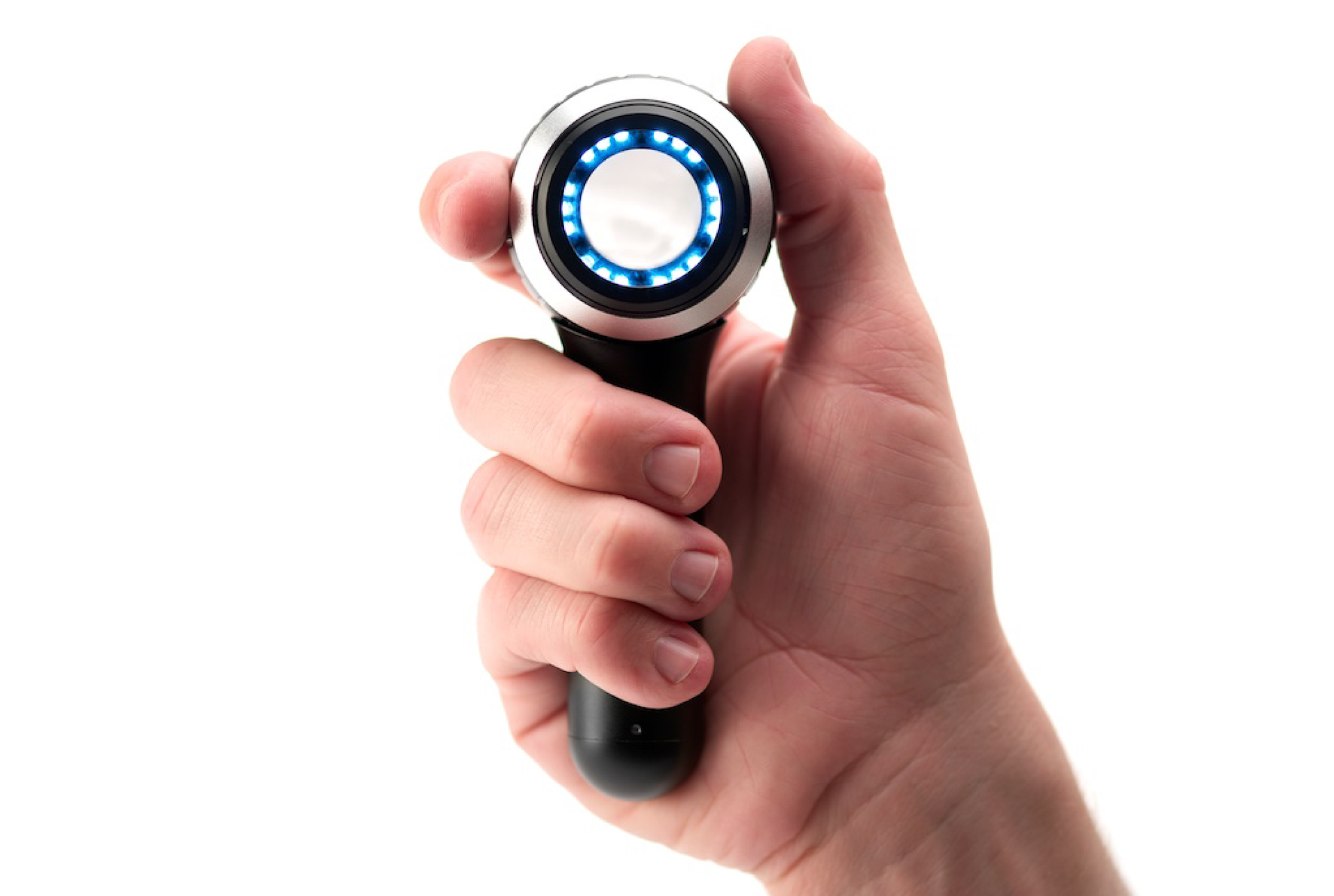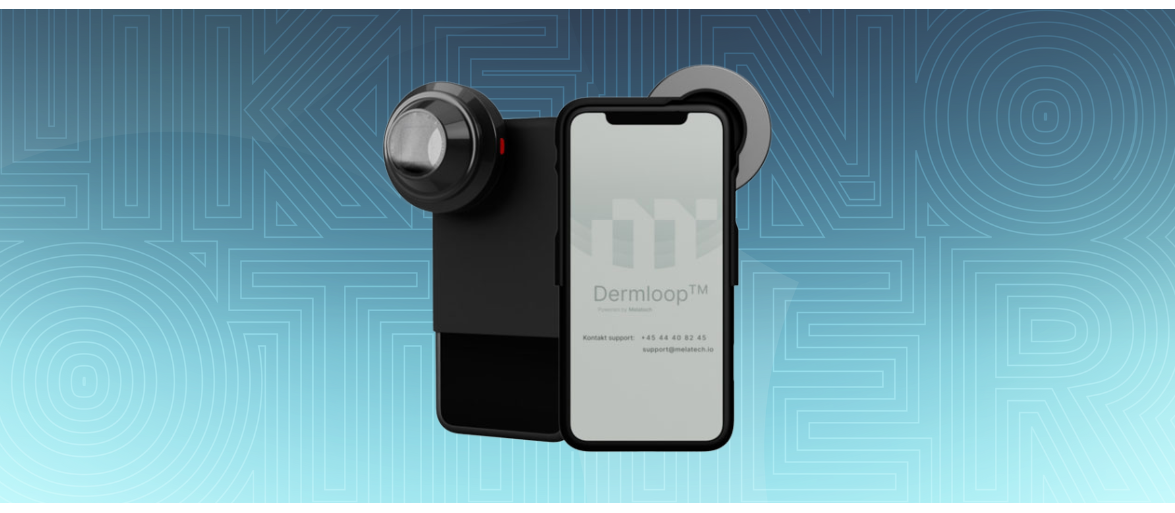
- Augusta University
- Georgia Cancer Center
- Community Connections
- Teledermatology
- Teledermatology Serving Georgia
Healthcare Providers
The purpose of Teledermatology Serving Georgia is to provide telemedicine (teledermoscopy / teledermatology) and distance learning approaches to help solve the dermatologic health disparities that many Georgians face.
Our Purpose CME Training Videos Project ECHOGuidelines of Care
Contact Us
Georgia Cancer Center
Health Sciences Campus
GCC - M. Bert Storey Research Building
(706) 721-0570
Our Purpose
Diagnostics
Physicians in training (Family Medicine residents and medical students) and healthcare providers in underserved areas are provided with dermatoscopes attached to an iPhone that will allow the provider to take dermatologic photographs of patients’ skin lesions with high magnification and resolution. The accompanying software enables the provider to instantaneously transmit photographs to expert dermatologists at Augusta University in a process that is akin to sending a text message. Our AU Dermatology Team will make a rapid, expert diagnosis of the lesion and return the diagnosis and management recommendations/referrals to the provider within, in most instances, 20-60 min. This information can be relayed in real-time to their patient. Of course, all the necessary training on how to use the dermatoscope and the software will be provided.
Education
We will also provide dermatology education for healthcare providers (as well as patients) using several approaches. Our website houses an electronic library of training videos on general dermatology, skin lesions, and dermoscopy for physicians and staff, as well as learning modules for patients and the community (e.g., about skin cancer prevention and skin care, other common cancers, and cancer-related topics, including risk factors). These videos can be accessed by individuals on their own electronic devices at any time. Training videos are eligible for Continuing Medical Education (CME) through Augusta University. We also provide live, real-time remote education in our TeleECHO TeleDerm sessions, using the Project ECHO model. Sessions include a didactic presentation by one of our dermatologists followed by a case presentation by a healthcare provider or student to better understand the diagnosis and differentiation from other possible diagnoses, review management recommendations and answer other questions. CME credit will also be awarded for participation in TeleECHO TeleDerm sessions.
Continuing Medical Education (CME)
The Georgia Cancer Center’s Teledermatology Serving Georgia program arranges CME credit through MCG’s Office for Faculty & Continuous Professional Development at no cost. You can earn CME credits by watching the training videos below on your own schedule and/or by attending live TeleECHO® TeleDerm Sessions (see Project ECHO).
HOW TO REGISTER FOR AN MCG CME ACCOUNT
Accreditation Statement
The Medical College of Georgia has been reviewed by the Accreditation Council for Continuing Medical Education (ACCME®) and awarded accreditation with commendation as a provider of continuing medical education (CME) for physicians. Accreditation in the ACCME System seeks to assure the medical community and the public that Augusta University delivers education that is relevant to clinicians’ needs, evidence-based, evaluated for its effectiveness, and independent of commercial influence.
Training Videos
These videos provide a basic understanding of the skin and how dermatoscopes can help with the diagnosis of common skin neoplasms. They cover the structure and function of the skin, benign and malignant neoplasms, and the basic principles of dermoscopy.
To earn CME credit, click on the "Take CME Course" button below each lecture title, which will take you to the CME page where you can take the pre-test, watch the video, and take the post-test. If you do not want, or need, CME credit, then click on the "Watch Video" button below.
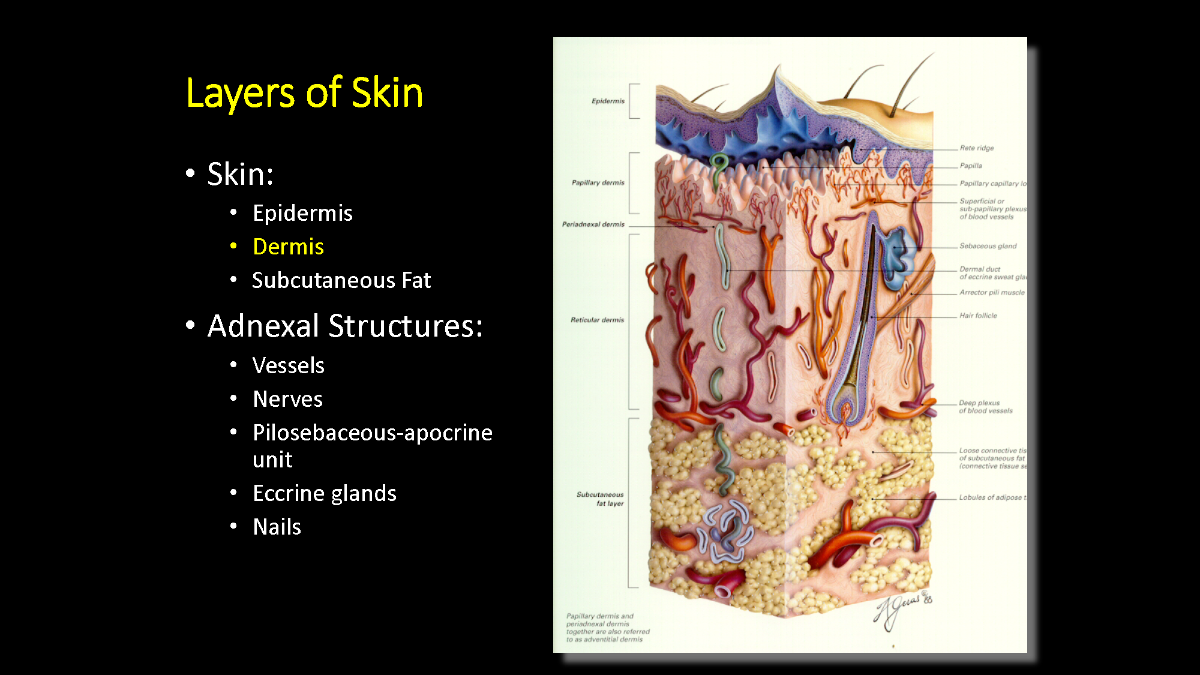
Structure & Function of the Skin
Learn about the basic anatomy & function of the skin
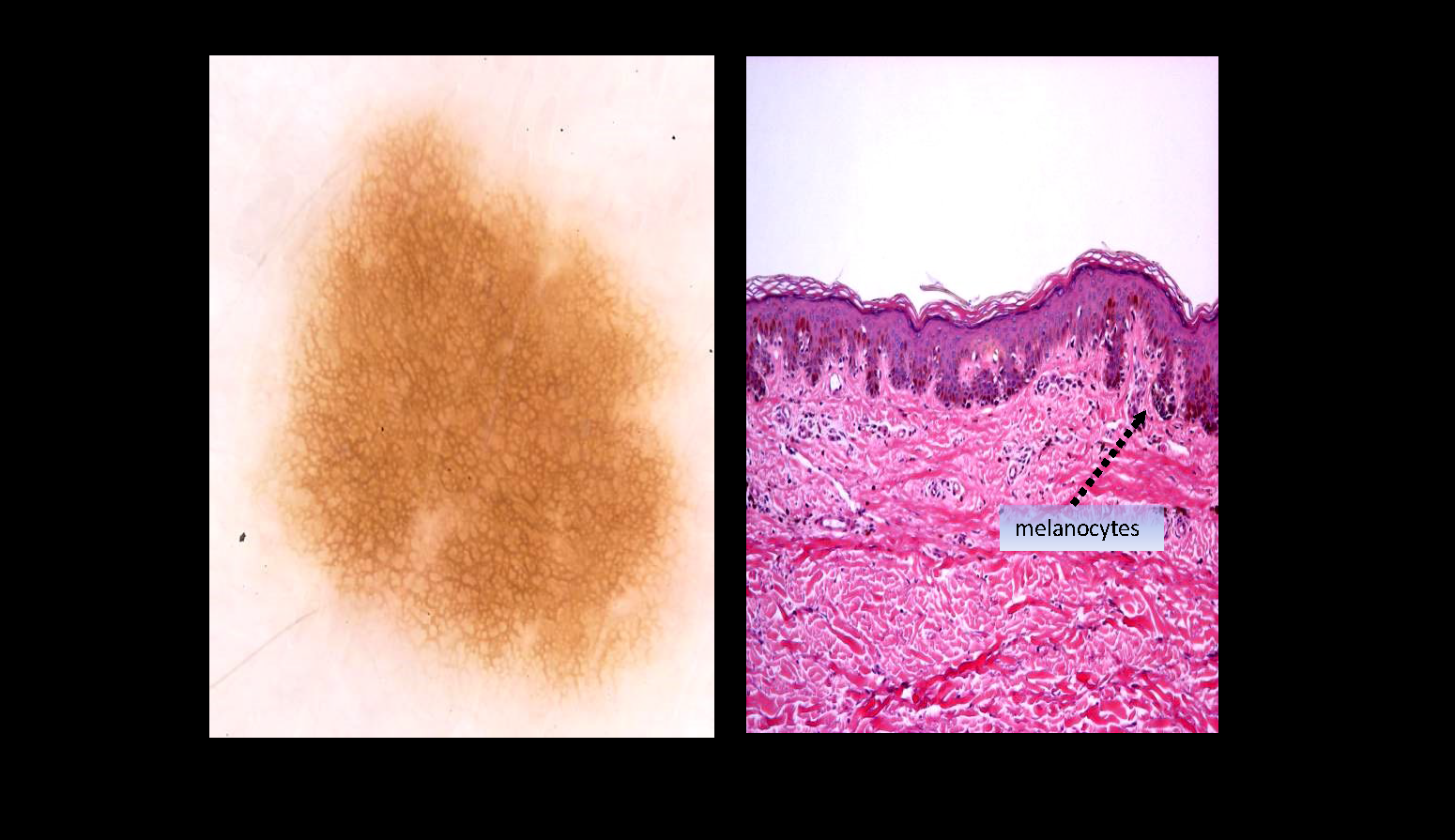
Fundamentals of Dermoscopy: Terminology
Learn about the basic anatomy & function of the skin
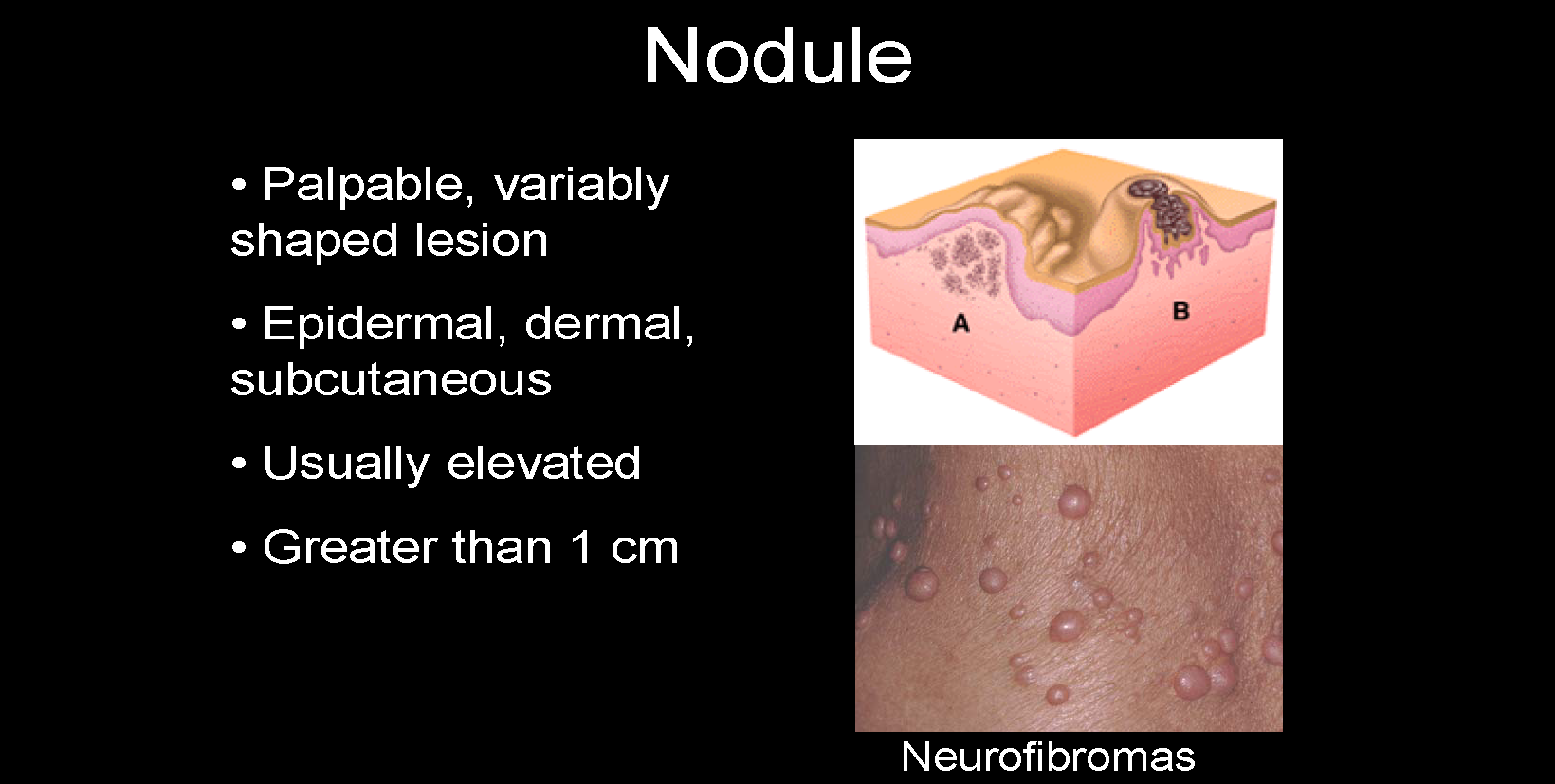
Benign Neoplasms of the Skin
Learn about common benign skin neoplasms, such as seborrheic keratoses & benign melanoctyic nevi
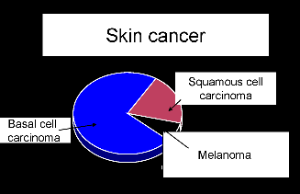 Malignant Neoplasms of the Skin
Malignant Neoplasms of the Skin
Learn about common malignant skin neoplasms, such as melanoma, basal cell carcinoma, & squamous cell carcinoma
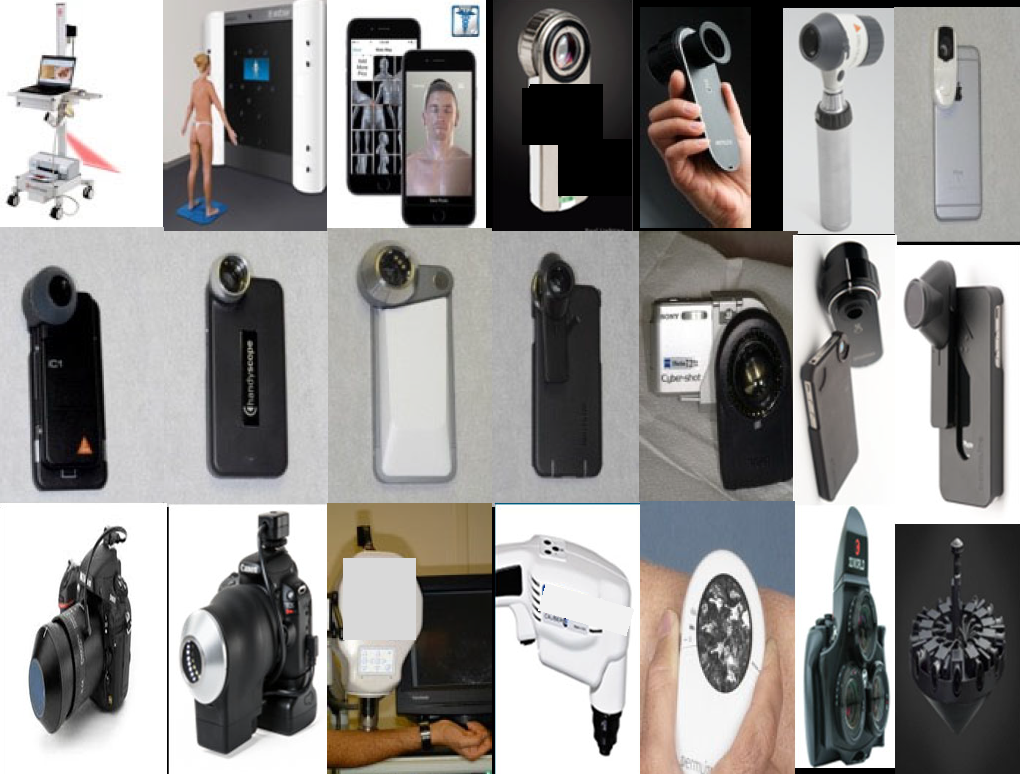
Diagnosis of Melanocytic & Non-Melanocytic Neoplasms
Learn how various imaging devices & technologies can be used to diagnose skin neoplasms.
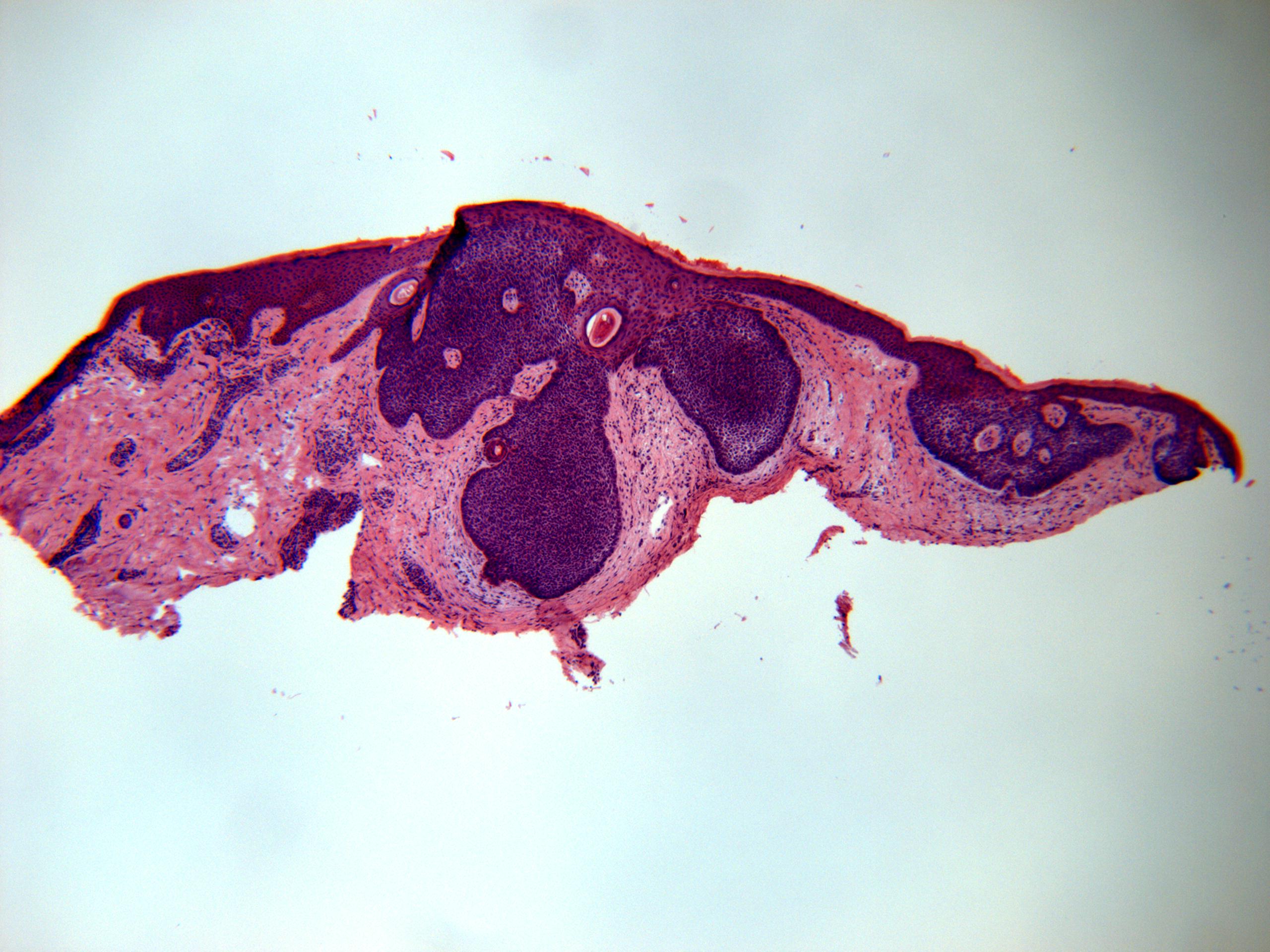
Treatment of Basal Cell Carcinoma
How to treat basal cell carcinoma surgically (including Moh’s surgery) and non-surgically (including pharmacologicals and radiation therapy)
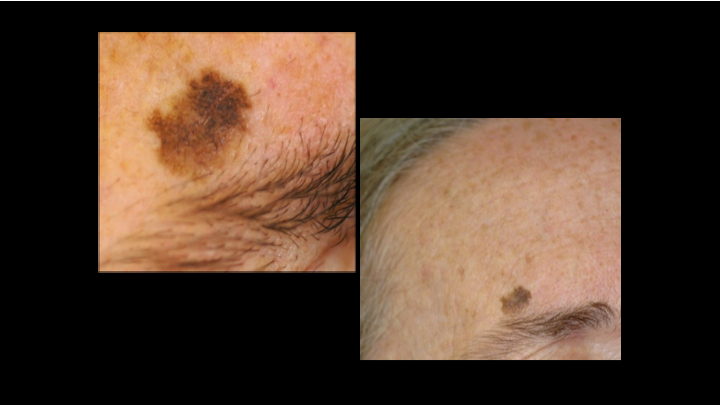
Clinical Evaluation of a Dermatology Patient
Learn how to clinically evaluate & diagnose your patient’s dermatological lesions
Project ECHO
Teledermatology Serving Georgia is proud to participate in the global learning community known as Project ECHO (Extension for Community Healthcare Outcomes). This model, which was developed in New Mexico in 2003 for treating Hepatitis C and other liver disorders, incorporates telecommunications to connect medical experts with healthcare providers in rural, remote communities. Project ECHO employs a Hub-and-Spoke model of learning, where the Hub consists of regional subject matter experts and the Spokes are the community partner sites. Learning occurs via telecommunication between the Spokes and the Hub and the Spokes with each other.
The Georgia Cancer Center partners with the ECHO Institute of the University of New Mexico to provide learning and training to healthcare professionals at other sites via videoconference (Zoom platform). Interactive, didactic presentations on various aspects of dermatological lesions will be provided by our dermatology experts at Augusta University (Drs. Kendall Buchanan, Loretta Davis, and Harold Rabinovitz). TeleECHO TeleDerm sessions are held once a month using the classic ECHO format: a 20-min didactic presentation and one or more case studies chosen by participants. Cases will be selected for their educational content, complicated presentation, or any other reason of interest. The cases will be discussed by the group of clinicians and the AU experts. This type of presentation embodies the Project ECHO principals of interactive learning communities, case-based learning, and democratization of knowledge. Our technology allows for live, real-time audio and video exchange between clinicians at the Augusta University Hub and participating sites (the Spokes).
Continuing Medical Education credits, administered through Medical College of Georgia’s Office for Faculty & Continuous Professional Development, are offered for most of our Project ECHO educational opportunities. TeleECHO TeleDerm sessions are recorded and banked in an easily accessible video library for later viewing or review. Information about TeleECHO TeleDerm sessions will be sent out to participating clinics by email.
TeleECHO TeleDerm Sessions
Full TeleECHO TeleDerm Sessions Videos
Guidelines of Care
Basal cell carcinoma
Basal cell carcinoma (BCC) is the most common form of human cancer, with a continually
increasing annual incidence in the United States. When diagnosed early, the majority
of BCCs are readily treated with office-based therapy, which is highly curative. In
these evidence-based guidelines of care, we provide recommendations for the management
of patients with BCC, as well as an in-depth review of the best available literature
in support of these recommendations.
Cutaneous squamous cell carcinoma
Cutaneous squamous cell carcinoma (cSCC) is the second most common form of human cancer
and has an increasing annual incidence. Although most cSCC is cured with office-based
therapy, advanced cSCC poses a significant risk for morbidity, impact on quality of
life, and death. This document provides evidence-based recommendations for the management
of patients with cSCC. Topics addressed include biopsy techniques and histopathologic
assessment, tumor staging, surgical and nonsurgical management, follow up and prevention
of recurrence, and management of advanced disease.
Primary cutaneous melanoma
The incidence of primary cutaneous melanoma continues to increase each year. Melanoma
accounts for the majority of skin cancer related deaths, but treatment is usually
curative following early detection of disease. In this American Academy of Dermatology
clinical practice guideline, updated treatment recommendations are provided for patients
with primary cutaneous melanoma (American Joint Committee on Cancer stages 0-IIC and
pathologic stage III by virtue of a positive sentinel lymph node biopsy). Biopsy techniques
for a lesion that is clinically suggestive of melanoma are reviewed, as are recommendations
for the histopathologic interpretation of cutaneous melanoma.
Manuscripts of Interest
- A Phase 3 Randomized Trial of Nicotinamide for Skin-Cancer Chemoprevention
Andrew C Chen, Andrew J Martin, Bonita Choy, Pablo Fernández-Peñas, Robyn A Dalziell, Catriona A McKenzie, Richard A Scolyer, Haryana M Dhillon, Janette L Vardy, Anne Kricker, Gayathri St George, Niranthari Chinniah, Gary M Halliday, Diona L Damian. N Engl J Med. 2015 Oct 22;373(17):1618-26. doi: 10.1056/NEJMoa1506197. - Dermatologist-level classification of skin cancer with deep neural networks
Esteva A, Kuprel B, Novoa RA, Ko J, Swetter SM, Blau HM, Thrun S. Nature. 2017 Feb 2;542(7639):115-118. doi: 10.1038/nature21056. Epub 2017 Jan 25.PMID: 28117445 - Neoantigen landscape dynamics during human melanoma-T cell interactions
Els M E Verdegaal, Noel F C C de Miranda, Marten Visser, Tom Harryvan, Marit M van Buuren, Rikke S Andersen, Sine R Hadrup, Caroline E van der Minne, Remko Schotte, Hergen Spits, John B A G Haanen, Ellen H W Kapiteijn, Ton N Schumacher, Sjoerd H van der Burg. Nature. 2016 Aug 4;536(7614):91-5. doi: 10.1038/nature18945. Epub 2016 Jun 27. PMID: 27350335
-
Analysis of Melanoma in African American Patients in the United States.
Boczar D, Restrepo DJ, Sisti A, Huayllani MT, Saleem HY, Lu X, Cinotto G, Manrique OJ, Spaulding AC, Forte AJ. Anticancer Res. 2019 Nov;39(11):6333-6337. doi: 10.21873/anticanres.13844. PMID: 31704864 -
The genomic landscapes of individual melanocytes from human skin. Tang J, Fewings E, Chang D, Zeng H, Liu S, Jorapur A, Belote RL, McNeal AS, Tan TM, Yeh I, Arron ST, Judson-Torres RL, Bastian BC, Shain AH. Nature. 2021 Feb;590(7844):E20. doi: 10.1038/s41586-020-03105-7.PMID: 33469220
-
Obstacles to skin self-examination: are frontier adults inclined abstainers?
Jakob D. Jensen, Manusheela Pokharel, Andy J. King, Kevin K. John, Yelena P. Wu & Douglas Grossman. Psychol Health Med 2020 Apr 25(4), 470-479. DOI: 10.1080/13548506.2019.1704035.Epub 2019 Dec 17.
Reduce the Burden
The Georgia Cancer Center at Augusta University is dedicated to reducing the burden of cancer in Georgia and across the globe through superior care, innovation, and education. Through unprecedented expansion, the Georgia Cancer Center is providing access to more first-in-the-nation clinical trials, world-renowned experts and life-saving options.
Follow the Georgia Cancer Center
